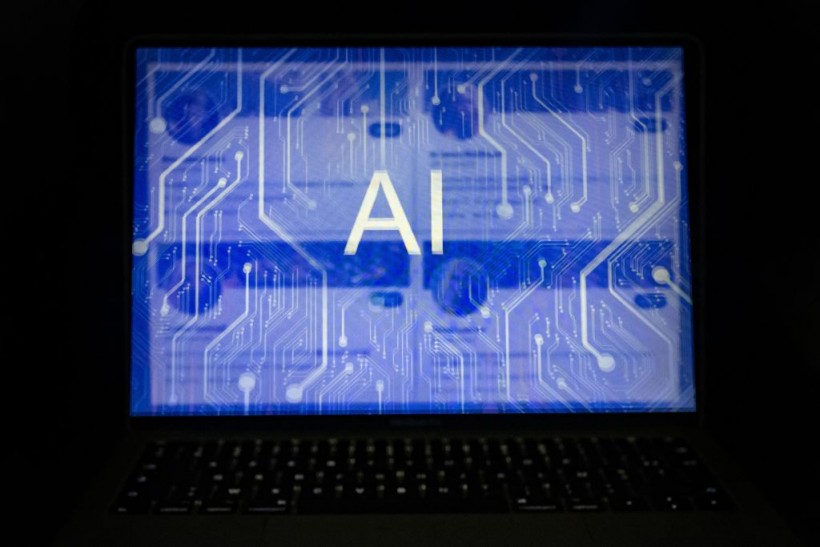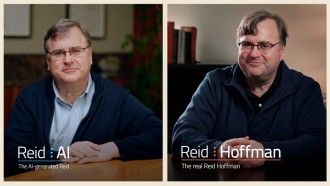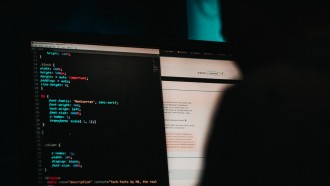Legally-mandated consumer notifications of artificial intelligence-generated content are on the horizon as lawmakers approve a Pennsylvania bill that places guardrails against the booming technology.
The bill was sent to the state Senate for consideration by a vote of 146-54. Republicans were roughly divided, while all Democrats agreed.
The proposed legislation would require a clear and noticeable declaration when artificial intelligence is used to produce written text, graphics, audio, or video, amending the state's laws against unfair trade practices and consumer protection.

(Photo: OLIVIER MORIN/AFP via Getty Images) This illustration photograph, taken in Helsinki on June 12, 2023, shows an AI (Artificial Intelligence) logo blended with four fake Twitter accounts bearing profile pictures apparently generated by AI software.
The notification must appear when users view the content for the first time. To help protect news organizations that inadvertently publish AI content, the bill's prime sponsor, Rep. Chris Pielli, noted that violators would need to post AI content with knowledge or recklessness.
The Pennsylvania Chamber of Business and Industry opposes it because it would not be restricted to false material and might subject firms to civil action.
According to a chamber official, the group is particularly against the bill's consumer notification section. A further clause in the bill forbids offenders from claiming that evidence about child sexual abuse produced by artificial intelligence is exempt from criminal prosecution.
Read Also: Can AI Replace Humans in Future Market Research? New Study Has Some Answers
AI Laws on US States
A recurring issue in the hundreds of state measures that regulate the new technology in the U.S. legislature is the public disclosure of AI's use. An analysis by the Voting Rights Lab, a nonpartisan voting rights watchdog, revealed late March that AI's rapid development has caused numerous states to introduce guardrails against it, all to be prepared for the upcoming AI-riddled elections.
The Voting Rights Lab stated that it was monitoring over 100 bills in 39 state legislatures that had measures aimed at regulating the potential for AI to generate election misinformation.
The legislature comes amid several high-profile incidents of "deep-fake" video technology, computer-generated avatars, and voices being utilized in political campaigns and commercials.
AI Legality
There are a few notable laws about AI. This year, Wisconsin will impose financial penalties on political marketers who fail to disclose the usage of content generated by artificial intelligence. A bill that Democratic Governor Tony Evers signed into law on Thursday stipulates that political marketers might face a $1,000 fine for each infraction.
Just last week, after classifying artificial intelligence-enhanced movies as an "opaque" tactic, a Washington State Judge ruled to prohibit their use as evidence. The decision is reportedly the first of its sort in a criminal court in the United States.
Judge Leroy McCullogh of King County Superior Court signed an injunction stating that the technology is novel and uses opaque means to communicate what the AI model 'thinks' should be disclosed.
Prosecutors in the case claimed they could not locate any previous US legal precedent for employing such technology in a criminal court in a February petition to King County Superior Court.
This is the first case that Jonathan Hak, a Canadian lawyer and solicitor with expertise in image-based evidence both domestically and internationally, is aware of where a criminal court has weighed in.
Related Article: Top Japanese Companies Demand AI Regulation: "Democracy and Social Order Could Collapse"

(Photo: Tech Times)





